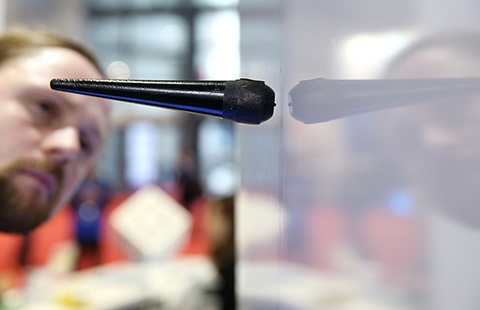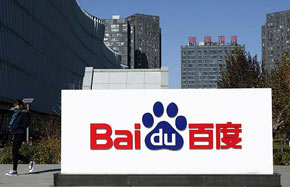Advisers call for regional efforts to reduce emissions
By ZHENG JINRAN and Pei Pei in Shijiazhuang (China Daily) Updated: 2013-01-29 03:35Hebei province's political advisory body is urging authorities in the region to implement stricter, more coordinated policies to cut emissions and control the worsening air quality in northern China.
Guo Bin, a member of the Hebei committee of China's top political advisory body, said: "We need to coordinate our actions in coping with the most serious smog we have seen in Beijing, Tianjin and Hebei province, instead of blaming each other for producing the pollution."
The political adviser, an expert in environment sciences at Hebei University of Science and Technology, warned that individual efforts aimed at tackling the pollution will not work as well as working together, because neighboring areas can affect each other due to the circulating air.
Thick smog has choked many cities in northern China since the start of 2013, including Beijing and Shijiazhuang, the capital of Hebei, which was even recently listed among the world's top 10 most-polluted cities.
Data from Hebei's environmental monitoring center showed most of pollutants in the smog were from the coal burning.
At least 200 million standard tons of coals were consumed last year in the province for electricity generation and other productions.
Guo said the concern is growing that high energy-consuming industries will continue to exacerbate environmental pressures in Hebei.
Some companies have moved out of cities, in the interests of environmental protection or other economic reasons, in recent years including Shougang Group, one of China's largest steel companies, which was based in Beijing but relocated 250 km away to Tangshan in Hebei.
"As a neighbor, we need to protect the environment of the capital and accept relocations. But relocations cannot solve the pollution problem as development continues," said Fan Sheling, a political adviser from Handan in the southwestern part of the province, which has many steel enterprises.
"We also need to develop more advanced technologies and preferential policies to support our effort in reducing emissions."
He suggested governments should prioritize the use of new energy sources such as solar and wind to reduce the country's dependence on coal.
In Shijiazhuang, 75 percent of energy is generated from burning coal, but car emissions are also blamed for the haze hanging over the city.
Car fumes are thought to account for 20 percent of the PM2.5 — particulate matter smaller than 2.5 microns in diameter — in the city's air, which health officials warn can enter the lungs and even the blood system.
There were more than 15 million cars on Hebei's roads by the end of 2012, which generated 6.5 million tons of pollutants in a year, according to the provincial traffic bureau.
"It's time to improve the transportation system in the city, for instance by promoting urban public transportation," said Zheng Junying, another senior political adviser in the province, who recommended further policies to restrict the issuance of car registrations, which are already implemented in Beijing.
Last year, Hebei's provincial political advisory body listed proposals on tackling air pollution in Shijiazhuang as its top priority.
The city government allocated more than 1.83 billion yuan ($290 million) to 87 projects to improve air quality. They included demolishing 486 coal-burning boilers and increasing the city's gas supply by 25 billion cubic meters.
Guo Bin, the environmental scientist, added: "Local efforts have had a limited effect on improving the air quality.
"We urgently need a coordinated effort by all cities."
Contact the writers at zhengjinran@chinadaily.com.cn and peipei@chinadaily.com.cn
- Safran and China Eastern Airlines create landing gear venture
- Chinese goods to enjoy tariff exemptions in Vietnam
- China's Evergrande in talks to buy British housebuilder Cala: Source
- Chinese premier's Eurasia trip to boost cooperation in production capacity
- Vietnamese province wants rail route linking with China
- Chinese Light Industry Council sets up permanent regional exhibition in Cyprus
- Kenya, Tanzania leaders launch China-funded bypass in Nairobi
- Chinese demand for iPhone 7 slowing in 2017: UBS report


















